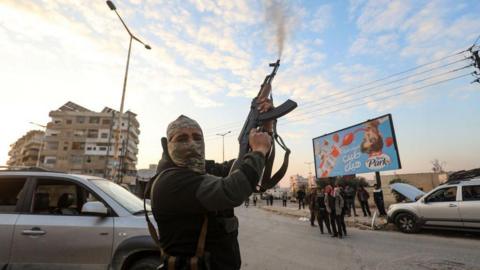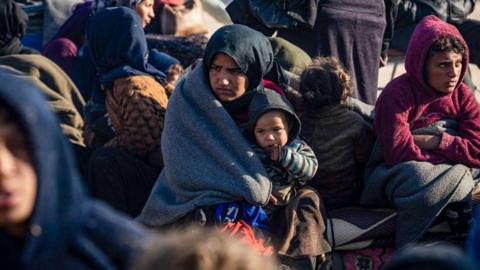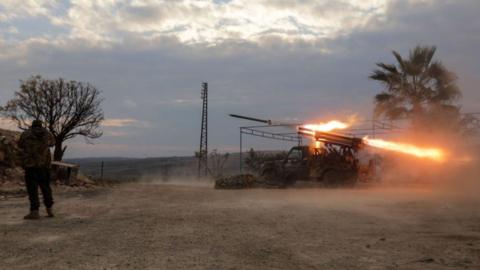Before the start of the rebel offensive, the government had regained control of Syria's main cities with the help of Russia, Iran and Iran-backed militias. However, large parts of the country remained out of its control.
The rebels' last stronghold was in Aleppo and Idlib provinces, which border Turkey and where more than four million people were living, many of them displaced from government-held areas.
The enclave was dominated by HTS, which is designated as a terrorist organisation by the UN, US, Turkey and other countries because it was al-Qaeda's affiliate in Syria until it formally broke ties in 2016.
A number of allied rebel factions and jihadist groups were also based there, along with Turkish-backed SNA factions and Turkish forces.
HTS and its allies said on 27 November that they had launched an offensive to "deter aggression", accusing the government and allied Iran-backed militias of escalating attacks on civilians in the north-west.
But it came at a time when the government's allies were preoccupied with other conflicts.
The Iran-backed Lebanese group Hezbollah, which was crucial in helping push back rebels in the early years of the war, has suffered recently from Israel's offensive in Lebanon. Its new leader Naim Qassem said on Thursday that it would "be by Syria's side in thwarting the goals of this aggression as much as we can".
Israeli strikes have also eliminated Iranian military commanders in Syria and degraded supply lines to pro-government militias there.
Russia has also been also distracted by the war in Ukraine.


